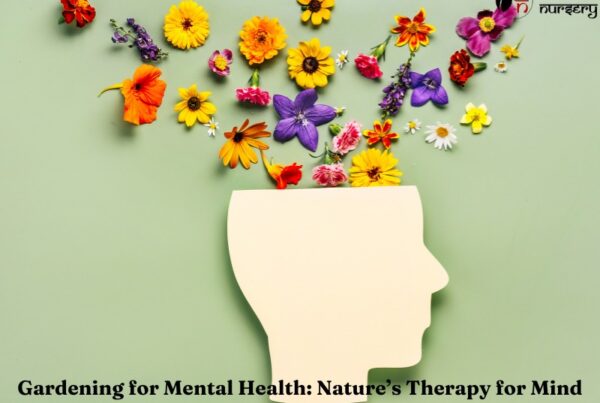In our rapidly developing modern world, it’s easy to just overlook the connection between humans and nature. Our lives are nowadays occupied by the screens and artificial environments that is in increasing the ignorance of healing potential of the natural world. But in the past few years people have started recognising the profound impact nature can have on our mental health and overall well-being. One concept that has been given much attention in recent years is ecotherapy – a therapeutic practice that harnesses the healing power of nature to promote mental and emotional wellness.
Understanding Ecotherapy
Ecotherapy, also known as “green therapy” or “nature-based therapy,” is a type of treatment that motivates individuals to engage with nature so as to help thenselves in improving their mental health. It recognizes that humans have an inherent connection to the natural world and that spending time outdoors greatly benefits our well-being.
Nature as a Healing Force
Research has shown that spending time in nature can easily help you to reduce stress, anxiety, and depression symptoms. Spending time in nature form positive physiological changes in our bodies, such as lowered blood pressure, reduced heart rate, and decreased cortisol levels – the hormone associated with stress. These effects can help us to relax, rejuvenate, and find peace in the midst of our daily struggles.
Ecotherapy Practices
There are various forms of ecotherapy, each has a different aspect and quality depending upon different aspects of the healing power of nature. Some common practices include:
1. Forest Bathing: this technique is inspired by the Japanese practice of shinrin-yoku, forest bathing involves immersing oneself in the natural environment to give out a sense of calmness and connection. It encourages slowing down your mind from the daily hustle bustle, observing nature, and engaging with the senses.
2. Horticultural Therapy: This practice involves engaging yourself in gardening or plant-related activities, which can boost mood, improve concentration, and improvise problem-solving skills. Connecting with plants and nurturing their growth can provide a sense of purpose and accomplishment.
3. Nature Walks and Hiking: Simply spending time walking or hiking in nature can have a positive effect on mental wellness. Being physically active outdoors helps release stress and uplift your mood…
3. Enhanced Self-esteem: Ecotherapy helps individuals by instiling in them a sense of accomplishment, competence, and self-worth. Engaging in activities such as gardening or hiking provides a sense of achievement and encourages a positive self-image.
4. Connection and Social Support: Participating in ecotherapy activities include things like group settings, providing opportunities for social connection and support. Sharing experiences with others who have similar interests in the things you have can foster a sense of belonging …..
Conclusion
Ecotherapy is a powerful tool that have the healing potential that lies within nature’s embrace. By reconnecting ourselves with the natural world, we can find solace, restore balance, and improve our mental well-being. Whether through forest bathing, horticultural therapy, or nature walks, all these techniques allows us to nurture the bond between humans and nature, driving positive change in our lives. So, step outside, breathe in the fresh air, and let nature heal and nurture your mind, body, and soul.










Recent Comments